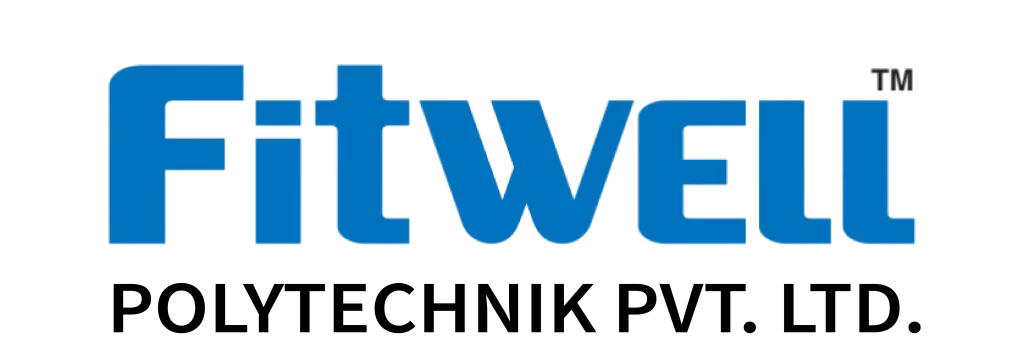
Introduction: The Surge in Demand for uPVC Pipes Among Top Contractors in India
The construction and infrastructure sectors in India have witnessed a significant transition toward sustainable and long-lasting materials. Among these, unplasticized polyvinyl chloride (uPVC) pipes have gained immense popularity due to their durability, lightweight design, and resistance to corrosion. Contractors across India increasingly prefer uPVC pipes due to their ability to withstand high pressure and fluctuating temperatures, making them a reliable choice for diverse applications such as water supply, irrigation, and sewage systems. This growing demand is further fueled by stringent environmental regulations and the emphasis on cost-effective construction practices, leading top contractors to favor uPVC pipes over traditional alternatives.
Understanding uPVC: Features and Benefits That Make it a Preferred Choice
uPVC, or unplasticized polyvinyl chloride, is a durable and chemically resistant material widely used in pipe manufacturing. Unlike traditional PVC, uPVC does not contain plasticizers, making it rigid yet lightweight. This material boasts high tensile strength and excellent corrosion resistance, ensuring longevity in diverse applications.
Key Features of uPVC:
- Durability: Resistant to weathering, chemical exposure, and impact.
- Non-toxic: Suitable for potable water systems without contamination risks.
- Low maintenance: Reduces operational costs over time.
Benefits That Stand Out:
- Eco-Friendly: Environmentally sustainable due to recyclability.
- Leak-proof installations: Minimal joint failures and consistent pressure handling.
- Cost-effective: Combines performance with affordability for contractors.
Durability and Longevity: How uPVC Pipes Outperform Traditional Alternatives
uPVC pipes are engineered using unplasticized polyvinyl chloride, making them inherently more robust than traditional materials such as metal or concrete. Their chemical composition resists corrosion, rust, and chemical reactions, which prolongs their operational life even in aggressive environments. Unlike metallic pipes prone to scaling, uPVC pipes maintain consistent smooth surfaces, ensuring uninterrupted flow over time.
Additionally, their ability to withstand extreme temperatures and pressure variations without degrading enhances their performance. uPVC pipes exhibit remarkable wear resistance, making them ideal for infrastructure projects requiring extended service life. Contractors benefit from reduced maintenance costs, thanks to their resistance to cracking, leakage, and deformation.
Cost-Efficiency and Economic Advantages of Using uPVC Pipes
uPVC pipes offer significant cost-efficiency due to their low material and installation costs compared to traditional piping materials. Their lightweight nature reduces transportation expenses, while quick installation minimizes labor costs. Contractors benefit from their long lifespan, requiring less frequent replacements, which lowers maintenance expenses. Additionally, uPVC pipes resist corrosion and chemical reactions, eliminating the need for costly protective coatings or repairs.
- uPVC’s energy-efficient production process further contributes to overall cost savings.
- The affordability of raw materials ensures competitive pricing for large-scale projects.
- Versatility in applications reduces the need for multiple specialized systems.
These features make uPVC pipes an economically viable choice for construction and infrastructure projects.
Eco-Friendly Solutions: Why Sustainability Matters in Construction Today
Sustainability has become a cornerstone of modern construction practices, emphasizing the importance of eco-friendly solutions. The demand for durable, recyclable materials, such as uPVC pipes, stems from growing environmental awareness and government regulations. uPVC pipes are known for their excellent energy efficiency throughout manufacturing and lifecycle, presenting an ideal material for contractors seeking green building alternatives.
Key benefits include minimal carbon emissions during production, resistance to chemical degradation, and a long lifespan, reducing waste. Additionally, their lightweight nature lowers transportation energy, aligning with industry efforts to reduce resource consumption. By adopting sustainable practices, contractors not only meet environmental standards but also foster long-term economic benefits.
Ease of Installation: Reducing Labor and Operational Costs
uPVC pipes are engineered to simplify installation processes, making them highly advantageous for contractors seeking cost-effective solutions. Lightweight construction ensures effortless handling, reducing the need for specialized machinery and lowering transportation expenses. Additionally, the precise dimensions and uniform design eliminate fitting challenges, allowing seamless assembly.
Contractors benefit from shorter installation periods, minimizing labor requirements and associated costs. The pipes’ adaptability to various applications further enhances efficiency, catering to both residential and industrial needs. Features like push-fit joints streamline operations, ensuring robust connections and curtailing maintenance demands. This ease of installation directly translates into significant savings in time and operational budgets.
Corrosion Resistance: Tackling India’s Challenging Climate Conditions
uPVC pipes are engineered to withstand the diverse and often extreme climate conditions across India. The coastal regions face high humidity and saline air, while many inland areas are prone to temperature fluctuations and chemical exposure. Traditional metal pipes often succumb to rust and corrosion under such conditions, leading to leaks and system failures. uPVC pipes, however, offer superior resistance due to their non-metallic and inert nature.
- Chemical Resistance: uPVC material resists degradation from aggressive industrial chemicals and salts.
- Durability in High Humidity: Unlike metal pipes, uPVC remains unaffected by moisture-laden environments.
By incorporating advanced manufacturing techniques, trusted uPVC pipe manufacturers ensure long-lasting performance in varying climates.
Versatile Applications: uPVC Pipes in Residential, Commercial, and Industrial Projects
uPVC pipes serve as a durable, reliable solution across diverse sectors due to their adaptability and robust performance.
Residential Applications
- Plumbing Systems: Used in freshwater and wastewater management for households.
- Irrigation: Ideal for garden watering and sprinklers, ensuring efficient water flow.
- Drainage Solutions: Provide effective and long-lasting drainage systems in residential complexes.
Commercial Applications
- HVAC Systems: Support air conditioning units and heat exchanger processes in office buildings.
- Water Distribution: Ensure safe and clean water supply for commercial spaces, such as hotels and shopping centers.
- Firefighting Systems: Act as reliable conduits for firefighting sprinkler systems.
Industrial Applications
- Chemical Transport: Suitable for non-reactive conveyance of chemicals in factories.
- Process Plumbing: Designed for specialized piping in manufacturing units.
- Wastewater Management: Offer seamless ion-resistance and durability for toxic waste disposal systems.
uPVC pipes excel due to their versatility, ensuring efficiency across these varied applications.
The Competitive Edge: What Sets Leading uPVC Manufacturers Apart
Leading uPVC pipe manufacturers distinguish themselves through a combination of innovation, stringent quality controls, and customer-centric approaches. They prioritize using advanced manufacturing technologies to ensure consistent pipe durability, strength, and resistance to environmental stress. Compliance with national and international standards further underscores their commitment to reliability.
- Material Innovation: High-grade raw materials enhance product longevity and eco-friendliness.
- Customization: Tailored solutions cater to specific contractor needs such as sizes and pressure ratings.
- Quality Assurance: Rigorous testing processes guarantee superior performance and leak-proof construction.
Furthermore, seamless logistics, after-sales support, and competitive pricing consolidate their leadership in serving India’s top contractors efficiently.
Case Studies: Real-World Examples of uPVC Success Stories in India
uPVC pipes have transformed infrastructure and agriculture projects across India, offering durability, cost efficiency, and seamless installations. Industry leaders have leveraged these pipes in diverse applications, delivering measurable results.
Success Stories:
- Rural Water Supply Projects
- Implemented extensively in Maharashtra to provide clean drinking water to underserved villages. uPVC pipes showcased unmatched corrosion resistance, ensuring longevity even under harsh conditions.
- Reduced maintenance costs for local governments.
- Smart City Initiatives
- Installed in underground drainage systems in Bengaluru, ensuring sustainable urban planning.
- Their leak-proof design mitigated environmental risks.
- Agriculture Irrigation Systems
- Widely utilized in Tamil Nadu, improving irrigation efficiency and productivity for farmers.
- Lightweight construction reduced logistical challenges, boosting adoption rates nationwide.
Benefits extend across water conservation, cost optimization, and enhanced operational efficiency.
Challenges and Future Trends: How the Industry Is Innovating for Tomorrow
The uPVC pipes industry in India faces several challenges, including meeting growing demand while maintaining sustainability. Stricter environmental regulations push manufacturers to adopt eco-friendly production practices, such as using lead-free stabilizers. Moreover, the rising demand for smart water management in urban areas emphasizes the need for advanced pipeline solutions.
Trends in innovation include:
- Adoption of Green Technologies: Manufacturers are investing in energy-efficient machinery and recyclable materials.
- Smart Pipeline Systems: Integration of IoT sensors for monitoring flow and detecting leaks.
- Customization and Durability: Development of pipes tailored for specific uses, such as agricultural or industrial needs, with enhanced longevity.
Collaboration between manufacturers, engineers, and policymakers drives advancements in maintaining quality while addressing these demands.
Conclusion: Why uPVC Pipes Are the Future of India’s Construction Landscape
uPVC pipes have emerged as a cornerstone in modern construction due to their unparalleled durability, corrosion resistance, and cost efficiency. Unlike traditional materials, they require minimal maintenance while offering a longer service life, making them an economically and environmentally sustainable choice. Their lightweight structure ensures easy transportation and installation, reducing labor expenditure and project time.
The versatility of uPVC pipes allows them to cater to diverse sectors such as plumbing, sanitation, industrial applications, and agricultural irrigation. With enhanced thermal insulation and leak-proof performance, they meet the ever-growing demands of India’s infrastructure needs. Their adoption aligns seamlessly with the nation’s vision for smart cities and eco-friendly development.

